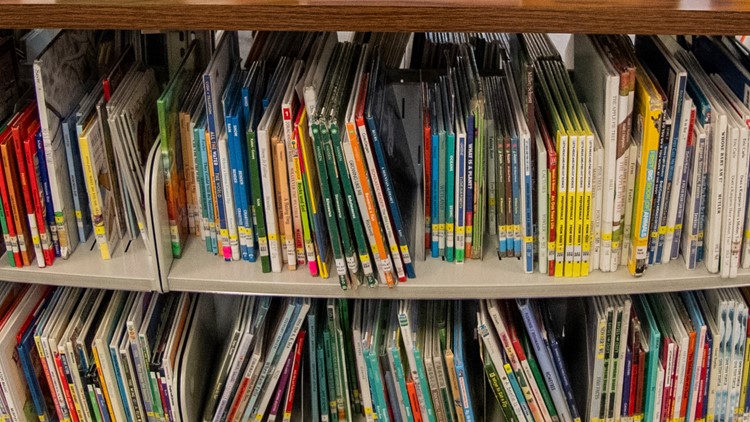COLUMBIA, S.C. — Some lawmakers are expressing concern about a proposed new rule that would give the South Carolina Board of Education more authority over the content in school library books.
The new rules were approved by the Board of Education in February, but they still must get approval from the state. At a House panel hearing Wednesday, lawmakers deferred making a decision after hearing concerns from teacher and school board members.
The policy would apply to books containing descriptions or depictions of sexual conduct as defined by state law. A book could be flagged if it was deemed inappropriate for school libraries.
Patrick Kelly with the Palmetto State Teachers Association is worried about what he said is the regulation's broad language.
"[It] could end up catching a larger net of material than what the department is trying to address in this regulation," Kelly said.
Parents or legal guardians would have the ability to file up to five complaints per month about objectionable materials. They could also appeal local school board decisions to the State Board of Education, effectively banning a book deemed inappropriate in one district from all schools statewide.
Miles Coleman, an attorney with Nelson Mullins law firm in Greenville, said there needs to be a uniform standard for book material statewide.
“We’re happy to acknowledge that there are some districts that have robust policies in place that are working. But we have to acknowledge there's some that aren’t and we need uniformity,” said Coleman.
However, not everyone agrees. While supporters are are urging for its passage, others say it would limit access to essential educational material.
"There are so many things in education that need help and support and changes to be made at the state level and this isn’t one of them," Lane remarked.
Lawmakers have until the end of the legislative session in May to make a decision. If not, it can be revisited in January when lawmaker reconvene.
Similar policies have been adopted by at least seven other states, including Alabama, Arkansas, Florida, Indiana, Iowa, Kentucky, and North Carolina.
RELATED: Department of Education hears first round to who will determine what students read in public schools



